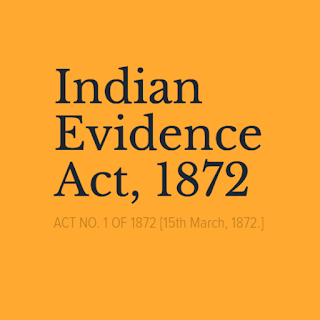Discuss the procedure of proving of Document that is required to be Law as contemplated under Section-68 of the Indian Evidence Act, 1872

Discuss the procedure of proving of Document that is required to be Law as contemplated under Section-68 of the Indian Evidence Act, 1872 Answer:- Section-68 of the Indian Evidence Act, 1872 said that, a document required by law to be attested shall not be used in evidence until one attesting witness has been called for the purpose of proving execution, if there be attesting witness alive and subject to process of Court and capable of giving evidence. 1. When until one attesting witness is called : - Section 68 of the Indian Evidence Act, 1872 lays down that when a document required by law to be attested, is produced in any judicial proceeding, it shall not be used in evidence, i.e. it shall not be proved and made part of the record unless one of the attesting witness at least is called for the purpose of proving its execution. For example- In a will production of at least one attesting witness is essential for the purpose of verified that the deed was signed by
